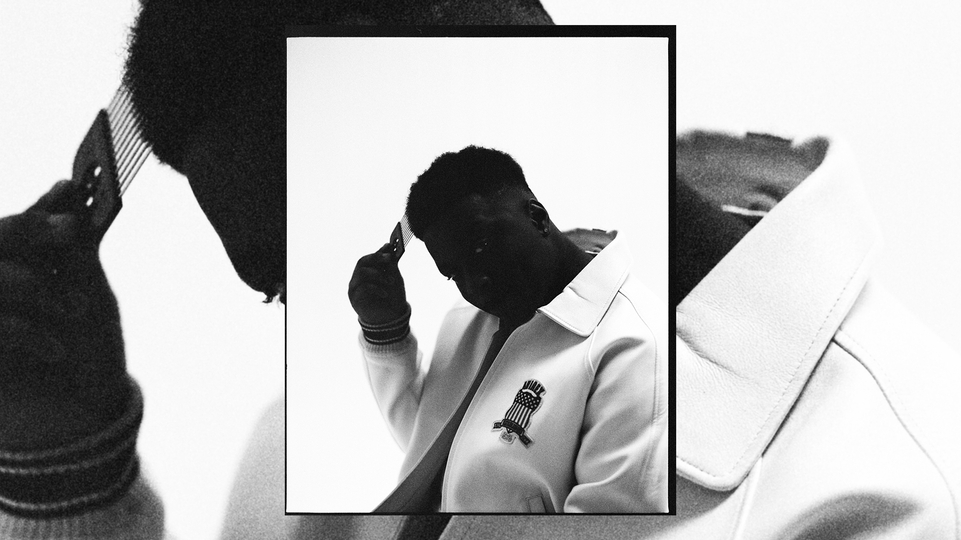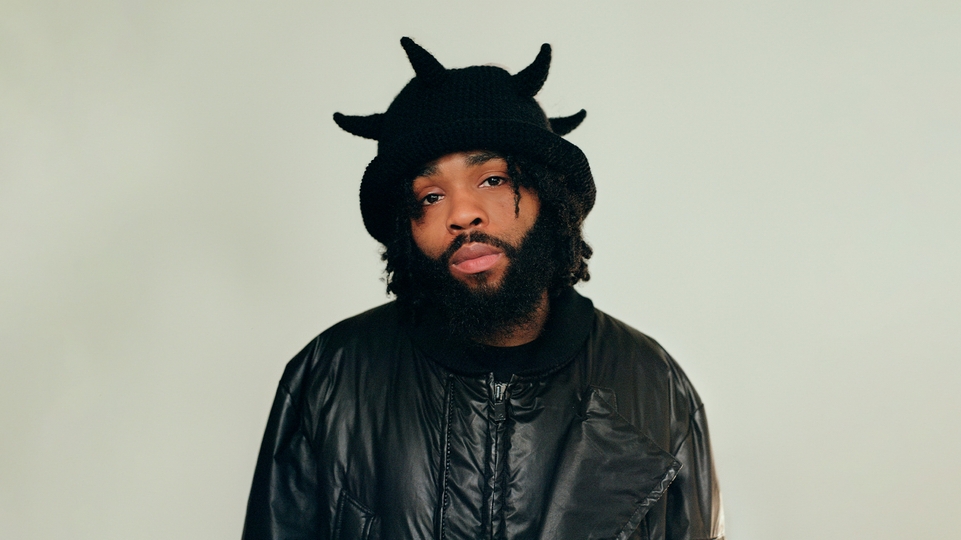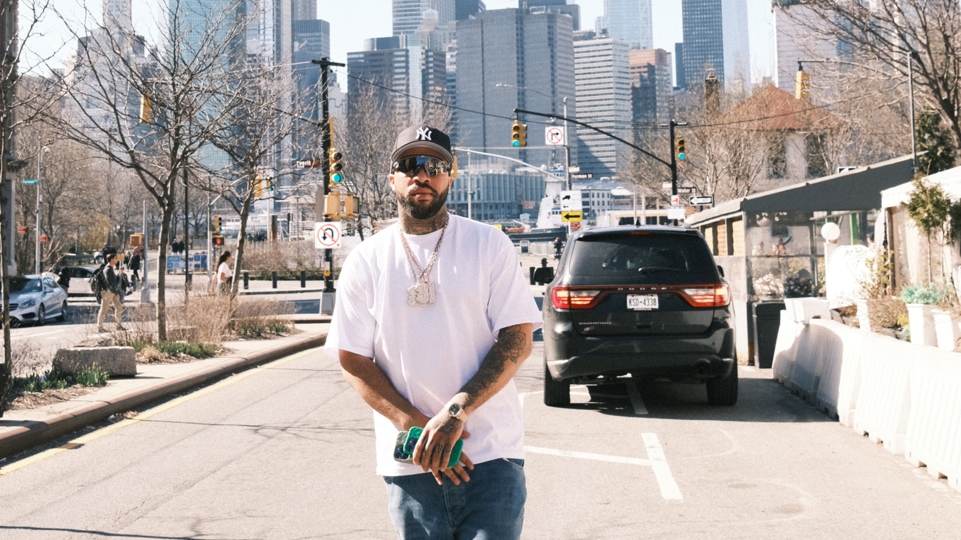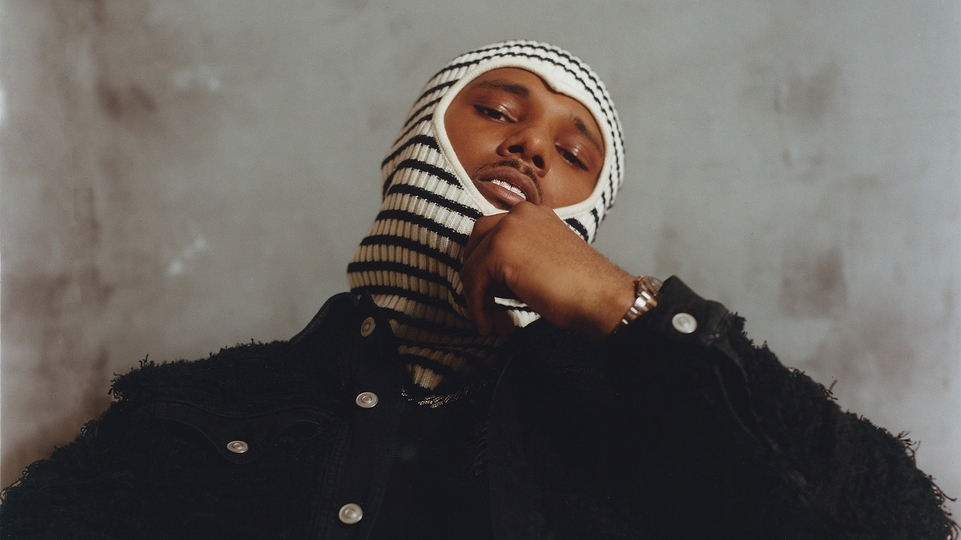
Meet The MC: KAM-BU
Infusing his art with aspects of his Caribbean heritage, and stories and messages aimed to drive political and social change, London rapper KAM-BU is a vital new voice in the UK rap scene
In the contemporary hip-hop sphere — and indeed across time — a lot of rappers build their careers off hyperbolised narratives and cosplaying. In the case of 24-year-old KAM-BU, however, the communal ethos and ruminations presented across his discography accurately mirror his everyday intentions and lifestyle. “I chose graft over grief, health over beef, look at me now it’s crazy what love did,” he acknowledges on 2021’s ‘Growth’.
“Volunteering and community work have always been important to me. It’s always been about, ‘what more can I offer to this life that I have, and this planet that I live on?’” he shares with DJ Mag from his bedroom in south-west London. On further reflection, he attributes these behaviours to his Rastafari upbringing and wider-Jamaican ancestry. “It’s about understanding cause and effect, the repercussions of my actions.”
Rasatafarian culture is that of rejecting Western oppression and seeking peace and unity within the African diaspora; like KAM-BU shares, it’s a way of life that supersedes words. From Grenfell protests, to charity and volunteer work, he is wedded to grassroots action and is adamant about its results. As lockdown eases across the UK, KAM-BU is particularly eager to return to Green Gym — a biodiversity and green spaces-focused charity honing in on equipping local communities. “I went to go and check if they are back last week because of Covid, but apparently the council are saying no right now.”
Still, KAM-BU is optimistic about how the last 18 months have changed the way that individuals interact. It’s something he particularly noticed while working at British highstreet retailer Marks & Spencer at the dawn of the pandemic last year. “You had to look people in the eye, have real conversations — hopefully the pandemic has allowed people to see the power in people.”
KAM-BU was born into an immigrant household in Nottingham, but quickly uprooted to Brixton, London months before his first birthday. He remained in the area for the most part of his youth before finally settling in south-west London, with his siblings and parents. Over the course of this migration, the rhythmic and poetic aspects of music informed his early fixation with rap, as well as an array of Caribbean-originating genres like soca, dancehall and reggae.
“I had an older brother and sister, but I’d always go out and play football with my brother,” he begins. “Everyone had a quick 16. It was just a thing, if you didn’t have a quick 16, what were you doing?” he laughs. Growing up during the early days of grime was pivotal to KAM-BU’s passion for freestyling within his social groups. “Rhymes, beats and bars with grime were constantly a part of my childhood. Back on the bus, in youth clubs, everyone stayed strapped with bars.”
Adjacent to KAM-BU’s sibling bonding experiences were paternal ones, his father imbuing him with technical music knowledge. “My dad played percussion in a reggae band, and he would always take me out with him as a kid,” says KAM-BU, recalling being taken to London’s Southbank Centre to watch his father’s reggae collective perform. These experiences engraved themselves into KAM-BU’s psyche, tugging him closer to his eventual vocation. “The bongos, the guitars, the percussion, the riffs; even though I was a kid and [messing around], I was taking it all in, the music has always been part of my heart.”
Together, the pair would also bond over Jamaican pioneers like Lee “Scratch” Perry and King Tubby, who shaped Jamaican music and had a huge impact on how international genres like hip-hop, jungle and dubstep were first constructed. KAM-BU solemnly acknowledges Perry’s recent passing, before co-signing dub as another pivotal Jamaican approach to sonics.
Britain is now in a moment of political reckoning, with tensions between the state and citizens clear for the world to see. The array of misinformation during Brexit, total lack of accountability in regards to Grenfell victims, and the absence of police protection for women like Sarah Everard and minority communities have amalgamated into a deep mistrust of those in power. Like NWA, Public Enemy and other prolific rap forces of the ’80s and ’90s, KAM-BU is unrestrained in his transparent and sobering takes on the contemporary British political environment. Moving with a much needed sense of urgency, he manifests a fortifying realism that harks back to the origins of rap and helps immigrant histories to survive.
On his inaugural major label EP ‘Black On Black’, KAM-BU emerges emboldened as a juggernaut of political and social commentary, able to dissect downcast British realities in a way that’s riveting but also witty, and oozing with a competitive lyrical edge reminiscent of Wretch 32 and Ghetts. From the critiques of youth club funding and minimum wage on ‘10 Toes’ and ‘Black On Black’ respectfully, to the Rastafarian sentiment of eventually returning to the ancestral home and ode to Grenfell victims across the pensive, drum-heavy ‘Plane Ahead’, KAM-BU deconstructs his politics in real time. He’s part of a new generation of British rappers (see: Slowthai, Kojey Radical, Jords) who are upfront with their philosophies. When asked about solutions to the contemporary domestic catastrophes, KAM-BU initially shies away from the question, hinting that they may be too radical, but eventually he admits that he too is still learning.
“I wish I had the answers, but that’s why I put my thoughts in the music — to inspire,” he asserts. “Things do change, but it just takes time and that patience thing that people don’t really understand. People think patience is three, four, five months, but really it could be three, five years or maybe 20.”
Ultimately, KAM-BU is adamant that documenting people’s experiences is the key to informing and changing perspectives (he’s quick to point out and commend Steve McQueen’s 2020 film anthology Small Axe about resilience and triumph within London’s West Indian community). “People probably thought [Notting Hill Carnival] was gangs, but now after watching it, they realise the heritage in West London and the history.”
Donning black paint and drawn-on horns on the ‘Black On Black’ cover art, KAM-BU infuses Caribbean culture into his project’s iconography, prioritising intergenerational legacies of the region. In this instance, the rapper pays tribute to Jab Jab culture — which embodies the evils of colonialism in a satirical format.
“From South London to Nottingham, they’ve all got their own carnival traditions,” he says. “Even from my grandad to us as Caribbeans, we’ve always brought our culture everywhere. It’s more than an identity thing — it’s inside our DNA. With the Jab Jab and protest, there’s so many forms of identity that I bring forward, and it’s all about the different displays of that. It’s been a long journey for all of us, and it’s a lot to unpack — and it all stems from transatlantic slavery.”
KAM-BU represents his grandfather’s legacy sonically, too. On a curated skit towards the latter half of ‘Black On Black’, juxtaposed with Kaidi Akinnibi’s enthralling performance on the saxophone, the rapper details his forebear’s journey to the UK as part of the Windrush Generation. It’s a strong representation of the sacrifices made across the diaspora, and yet another reminder of the risks and rewards experienced by those venturing towards change. Artistically, it harnesses KAM-BU’s early demonstrations of innovative narrative-building, and foregrounds the immoral and wrongful deportation of Windrush communities by the British government that emerged at the end of the last decade.
As KAM-BU towers over audiences at London venue The Social a few days after our interview, his refined cadence and effortless flow are more apparent than ever. It becomes clear that he is not only a student of potent lyrics — he’s switched from writing on his phone to notepad and pen in recent months — but of the art of performance, too. “The way that Dizzee Rascal moves on stage, it looks like he’s having fun, but interacting with the crowd, also,” he gushes.
Marching through the crowd, mosh pits and all, KAM-BU embodies the very essence of his moniker; as he tells us, “BU stands for being yourself.”





